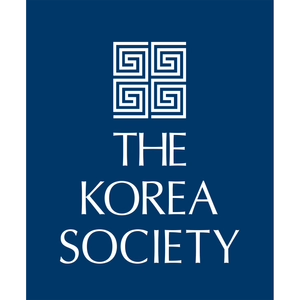
When restaurant employees get coronavirus
06/18/20 • 31 min
Variations of the same announcement have been coming out a steady clip this month: Restaurants that recently reopened after coronavirus restrictions were lifted said they were closing up shop again.
The reason? Their employees tested positive for COVID-19.
While some Charleston restaurant owners have adopted the unofficial course of action for businesses with a coronavirus case — post a message on social media, close for deep cleaning and reopen — many have said the state should be giving guidance on what to do.
Recently, the state health department did, and Post and Courier food editor Hanna Raskin predicts that guidance will bring the stream of closings to a halt, or at least slow them down dramatically.
In this week's podcast, Raskin discusses what that guidance is and why she thinks local restaurants that identify COVID-19 cases on their staff will likely choose, from now on, to keep operating.
We also discussed an announcement from Charleston's Wine + Food festival that got slammed by activists as being the "easiest stance" possible, how Raskin felt when she dined inside at a restaurant and why she thinks diners should assume while they're eating out that someone could have coronavirus.
Variations of the same announcement have been coming out a steady clip this month: Restaurants that recently reopened after coronavirus restrictions were lifted said they were closing up shop again.
The reason? Their employees tested positive for COVID-19.
While some Charleston restaurant owners have adopted the unofficial course of action for businesses with a coronavirus case — post a message on social media, close for deep cleaning and reopen — many have said the state should be giving guidance on what to do.
Recently, the state health department did, and Post and Courier food editor Hanna Raskin predicts that guidance will bring the stream of closings to a halt, or at least slow them down dramatically.
In this week's podcast, Raskin discusses what that guidance is and why she thinks local restaurants that identify COVID-19 cases on their staff will likely choose, from now on, to keep operating.
We also discussed an announcement from Charleston's Wine + Food festival that got slammed by activists as being the "easiest stance" possible, how Raskin felt when she dined inside at a restaurant and why she thinks diners should assume while they're eating out that someone could have coronavirus.
Previous Episode

Coronavirus spikes in SC
When we recorded this episode, the seven-day moving average of coronavirus cases in South Carolina had hit a new high for 11 days in a row.
Then, after new case totals were released later in the afternoon, Tuesday became the 12th consecutive day with a record seven-day average.
Coronavirus cases are climbing, and with nearly all state-mandated restrictions lifted and no second wave of shutdowns anticipated, it's going to be up to South Carolinians to take actions to slow the virus's spread.
Health experts in the state are urging people to wear masks and practice social distancing. Based on some estimates, South Carolina hasn't done too well at keeping its distance up to this point, and mask usage has been inconsistent.
We checked back in with health editor Lauren Sausser and health and business reporter Mary Katherine Wildeman to talk about why coronavirus case numbers are rising, which South Carolina county has emerged as a hotspot and why the increase can't be explained by increased testing.
Next Episode

The Calhoun monument and its legacy
After more than 17 hours of sawing, slicing and tethering, the 12-foot-tall statue of John C. Calhoun that's towered over Marion Square for more than a century came down on Wednesday.
While that may seem long — many hours longer than city officials had anticipated it — efforts to remove it are really as old as the monument itself, which Black Charlestonians have seen as a physically imposing symbol of oppression.
Calhoun, in addition to being one of the most influential politicians of his day, was also one of the most ardent defenders of slavery. He described it as a "public good."
This week, we invited a couple guests from outside the newsroom to join the podcast: historians Adam Domby and Bernard Powers.
Domby is a historian of the Civil War, Reconstruction, and the American South. He’s also the author of the book, “The False Cause: Fraud, Fabrication, and White Supremacy in Confederate Memory,” which was published earlier this year.
Powers is a professor emeritus of history at the College of Charleston and is the director of the Center for the Study of Slavery in Charleston. Right now, he's serving as the interim CEO of the International African American Museum, which is under construction now on the Charleston peninsula.
Both Domby and Powers were able to frame this moment in Charleston's history and speak to some of the questions being raised today about what communities should do with their monuments and what statues may take the place of those that, like Calhoun, are coming down now.
We also heard from reporter Mikaela Porter, who covers the city of Charleston and was one of several of journalists staked out at Marion Square overnight, talking with community members who gathered there to see Calhoun come down.
During the episode, we dig into how City Council got to its unanimous vote, what the statue symbolized when it was constructed in the late 19th century, and why Powers thinks the city was creating new history, not erasing it. Listen now to find out.
If you like this episode you’ll love
Episode Comments
Generate a badge
Get a badge for your website that links back to this episode
<a href="https://goodpods.com/podcasts/understand-sc-60617/when-restaurant-employees-get-coronavirus-8683043"> <img src="https://storage.googleapis.com/goodpods-images-bucket/badges/generic-badge-1.svg" alt="listen to when restaurant employees get coronavirus on goodpods" style="width: 225px" /> </a>
Copy




